
Cluster Hire Initiative: Jesuit Values Come Alive in the Classroom
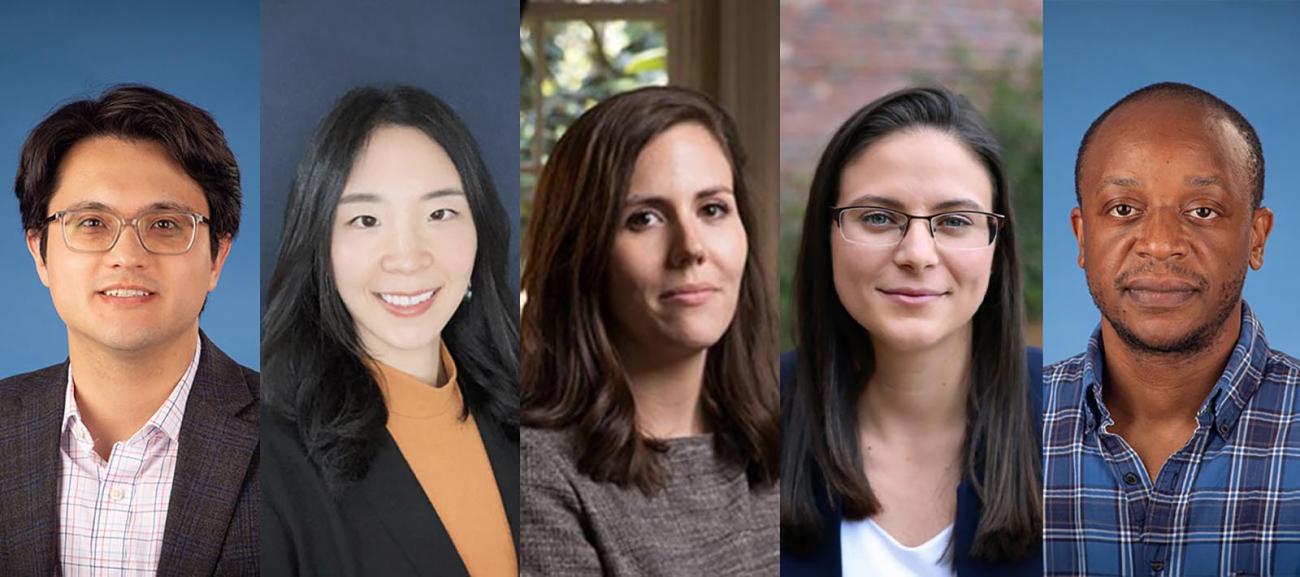
A new hiring initiative at Creighton’s College of Arts and Sciences seeks to enhance current efforts to enact the Jesuit mission, connecting the classroom with the communities in which we live and supporting students’ talents to address the world’s greatest needs.
Our Jesuit, Catholic mission forms students as agents of change who think critically, question systems and structures, discover truths, appreciate humanistic tradition and thus seek solutions to transform society. These core values have always promoted justice and equality, based upon the principle that every human is a profound gift made in the image and likeness of God and deserving of dignity and opportunity.
During the 2022-2023 academic year, Arts and Sciences piloted a Cluster Hire Initiative. An integrated cross-disciplinary project, the goal of the initiative is twofold: to broaden the College’s reach in recruiting the best possible teaching candidates and to better deepen the student experience of inclusion and diversity.
The Cluster Hire Initiative identifies new faculty in multiple departments whose line of inquiry in research or teaching incorporates social justice and race. Members of the first cohort work with senior faculty to collaborate on scholarship and curriculum to advance student engagement with social justice and enhance a sense of community and belonging. The pilot led to a productive collaboration among different disciplines and helped the College reimagine how we can bring the most talented new faculty to our campus.
“Having a caring and diverse community is central to the Creighton experience, for both our students and our faculty and staff,” says Bridget M. Keegan, PhD, professor of English and dean of the College of Arts and Sciences. “Supporting research and teaching that explores and advances equity and belonging aligns beautifully with our academic purpose and Jesuit values and enriches our students’ education. I am proud of this first cohort of new colleagues and the foundation it has established for the future success of our efforts to provide a distinctive Jesuit liberal arts education.”
The pilot is continuing for the 2023-2024 year, with five positions across several departments. But now, we’d like to introduce the members of the 2022-2023 Cluster Hire Initiative:
Hyoseol Ha, PhD
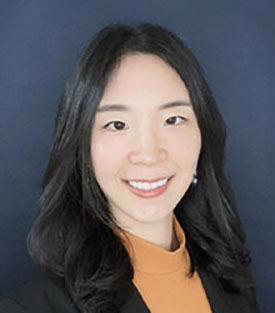
“Foregrounding voices that are either forgotten or obliterated from American history and cultural imagination brings me great scholarly satisfaction,” says disabilities studies scholar Hyoseol Ha, PhD, assistant professor, Department of English. “I see so much value in them as they offer us novel ways to look at things that are seemingly familiar to us.”
Ha’s research centers on 19th and 20th century U.S. literary and cultural productions, from oral traditions, films, and archival materials to novels, essays and plays. Her focus is on works that pertain to the voices of people who live at the intersections of race, gender, sexuality, class and disability.
“When I teach, I strive to bring the historical voices from my research into conversation with contexts and show students the importance of recognizing the diversity of voices that made our past into the present,” Ha says. “I am eager to host social justice reading groups and workshops for faculty and students within and beyond the English Department.”
For Ha, Creighton is synonymous with community. She says her cohort has not only provided her a “vibrant forum” to share her research and professional support for her success, but it also helped her learn more about the city of Omaha and its communities.
Ha earned both her bachelor’s and master’s degrees from Hanyang University in Seoul, Korea, and her doctorate from the University at Buffalo, State University of New York, where she taught both undergraduate and graduate courses before coming to Creighton.
Mphatso Kaufulu, PhD
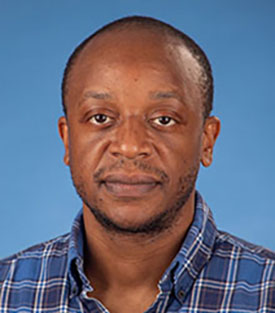
Mphatso Kaufulu, PhD, postdoctoral fellow in the Department of Communication Studies, explores gender and race across two continents in his two research topics. The first is postcolonial studies, focusing on gender and sexuality in southern Africa. The second is the field of mass communication and focuses on critical cultural studies in race and gender in the U.S.
In the Creighton classroom, Kaufulu says he seeks to foster a global and historically informed approach to communication by incorporating “African postcolonial lenses … in the areas of race, gender and sexuality, as well as critical indigenous perspectives.”
“These lenses and perspectives are not additions or supplements to my approaches,” he adds. “Rather, they are central to the courses and inform my pedagogical practices for my classes.”
Kaufulu earned two social sciences bachelor’s degrees, one from the University of Malawi and another from the University of KwaZulu-Natal, where he also earned his master’s degree in social science. He continued his education at the University of Southern Mississippi, completing a master’s degree in political science with an emphasis on international relations and a doctorate in communication studies with a focus on mass media and critical cultural and postcolonial analysis.
He values being a member of the Cluster Hire Initiative, saying it has helped connect him to scholars across the University. He finds Creighton a “reflective and curious” environment and believes “this is the intellectual and academic humility we need for more globally oriented outlooks.”
Roy Lee, PhD
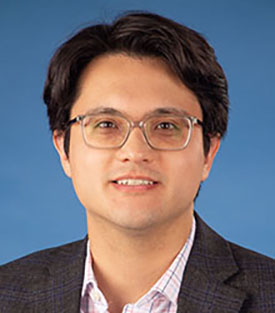
Roy Lee, PhD, assistant professor, Department of Philosophy, earned his bachelor’s degree from Yale University and doctorate from Stanford University. He specializes in ancient Greek philosophy and ethical theory. In particular, he says his research looks to ancient sources – Aristotle, for example – to find arguments, theories and sources of inspiration for contemporary moral philosophy. It involves combining a deep understanding of ancient sources and their contexts with the philosophical work of appropriately applying these texts to the contemporary moral and political philosophy problems we face today.
Lee has considered the role of motivation in assessing human action. For instance, one can make a charitable contribution altruistically out of a sense of justice. But one can be dually motivated by considering the year-end tax deduction as an inducement.
He also has explored the role of ideal and non-ideal theory in moral and political philosophy. Ideal theory uses a “perfect” model of society to determine how to address political problems, whereas non-ideal theory addresses political problems in light of the realities of wrong-doing, non-compliance and historical injustice.
“My research focuses primarily on ancient Greek philosophy, but I focus on questions that are deeply entwined in contemporary discussions about race and social justice,” Lee says. “The Cluster Hire Initiative has helped me meet other scholars and teachers from other departments in the University who work on topics from which I might also learn a lot. We’ve been able to talk about strategies in our teaching and themes from our research together.”
For Lee, Creighton is an academic environment that “combines learning about the world together with the will to improve the world, while deepening one’s faith and understanding of things beyond it.”
Allison Serraes, PhD
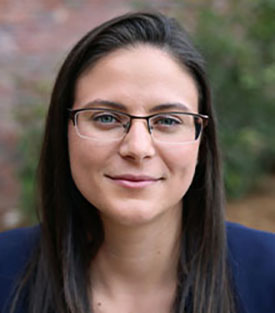
Allison Serraes, PhD, assistant professor, Department of English, seeks to place historically underrepresented voices in the center of conversations. Her work with Mississippi’s Prison-to-College Pipeline Program, which delivers for-credit college courses to incarcerated individuals at the state’s penitentiary, has greatly informed her research on African American literature and mass incarceration in the U.S.
“I could see a lot of the injustices I was reading about at work in the prison classroom. Working with these students helped me think through questions of justice, state power, race and society,” she says.
Serraes is continuing the conversation in the Creighton classroom now. “There seems to be a seamless move between in-class conversations and real-world applications of ideas (at Creighton), which is not something you get at every university,” she notes. “I’ve only been here a semester, and I’m already working with a student on a capstone project about prisons and literature. It’s energizing as a researcher to see this level of passion in students.”
The Florida native studied African American literature and social justice movements at Florida Gulf Coast University, attaining both her bachelor’s and master’s degrees at the institution before attending the University of Mississippi for her doctoral studies. She says being part of the Cluster Hire Initiative has smoothed her adjustment to a new city and university and has been a career-enhancing experience as well: “The group supports my research by providing opportunities and funding to develop as a scholar and connections to people across campus who could collaborate on bigger projects.”
Plus, being part of a Jesuit university, with its emphasis on service, cura personalis and forming agents of change, reinforces her academic interests.
“The importance of the humanities is that students, regardless of major, are challenged to bring ethics and empathy into the conversation at every turn,” Serraes says.
















